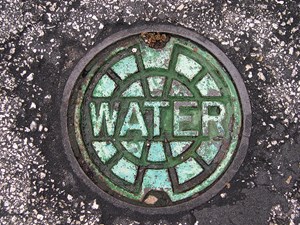Pennsylvania’s wastewater infrastructure rated “poor” by engineering group
(UC) — The Pennsylvania Council of the American Society of Civil Engineers (ASCE) released the 2022 Report Card for Pennsylvania's Infrastructure on Tuesday, where 15 categories of infrastructure received an overall grade of a “C-”. Specifically, the state’s water infrastructure received a grade of “D”. According to the report, a C is considered “mediocre” while a D is “poor.”
Each category was evaluated on the basis of capacity, condition, funding, future need, operation and maintenance, public safety, resilience, and innovation.
“This report shows that Pennsylvania’s infrastructure has seen some noteworthy improvements and that our lawmakers are prioritizing the built environment, but out-of-sight, out-of-mind systems such as water and wastewater pipelines are lacking the necessary attention,” said David DiGioia, chair, 2022 Report Card for Pennsylvania’s Infrastructure. “With help from the Bipartisan Infrastructure Law, we could improve our communities for generations if we double down on investment and close our funding gaps across all sectors included in this report.”
Drinking Water (D) and Wastewater (D-)
Despite recent investment in water main replacement and improvement in identifying vulnerability to failures for prioritization of repairs, Pennsylvania’s public water systems are projected to have a $10.2 billion funding gap over the next 10 years, a number only very slightly offset with recent federal actions to provide infrastructure funding.
One emerging concern nationally as well as in Pennsylvania is a class of chemicals known as perfluoroalkyl and polyfluoroalkyl substances (PFAS), otherwise known as “forever chemicals,” which have been linked to causing cancer and other serious illnesses. In 2021 roughly one-third of 412 Pennsylvania drinking water systems detected PFAS levels higher than permissible by the EPA health advisory. There remain hundreds of thousands of residential lead pipes still in use in Pennsylvania, although communities have begun taking action. In March 2020, the Pittsburgh Water and Sewer Authority (PWSA) agreed to remove thousands of lead water pipes by 2026.
Aging wastewater management systems threaten the state’s natural environment and public health. Pennsylvania has among the most combined sewer overflows (CSOs) in the nation. CSO’s refer to combined sewer and sanitary sewer lines overflowing, usually due to severe rain events, resulting in untreated human and industrial waste, as well as other pollutants, entering into the environment.
The average age of most sewer systems is approaching 75 years with many pipes over 100 years old. The Commonwealth has a funding gap of $8.4 billion over the next 10 years to repair existing systems, upgrade existing systems to meet regulatory requirements, control CSOs, address illicit Sanitary Sewer Overflows, and construct new or expand existing systems to meet increasing demand. Available funding over that time is estimated to be $900 million, only about one-tenth of the required annual investment.
The report concluded that aging infrastructure network and struggling water systems threaten the health, safety and welfare of the region.
Related News
From Archive

- Glenfarne Alaska LNG targets late-2026 construction start for 807-mile pipeline project
- U.S. water reuse boom to fuel $47 billion in infrastructure spending through 2035
- $2.3 billion approved to construct 236-mile Texas-to-Gulf gas pipeline
- Major water pipe break in Puerto Rico hits over 165,000 customers
- Potomac River Tunnel project enters construction phase beneath Washington, D.C.
- Pennsylvania American Water launches interactive map to identify, replace lead water service lines
- Trump's tariffs drive $33 million cost increase for Cincinnati sewer project
- Utah city launches historic $70 million tunnel project using box jacking under active rail line
- Tulsa residents warned after sewer lines damaged by boring work
- Fatal trench collapse halts sewer construction in Massachusetts; two workers hospitalized




Comments